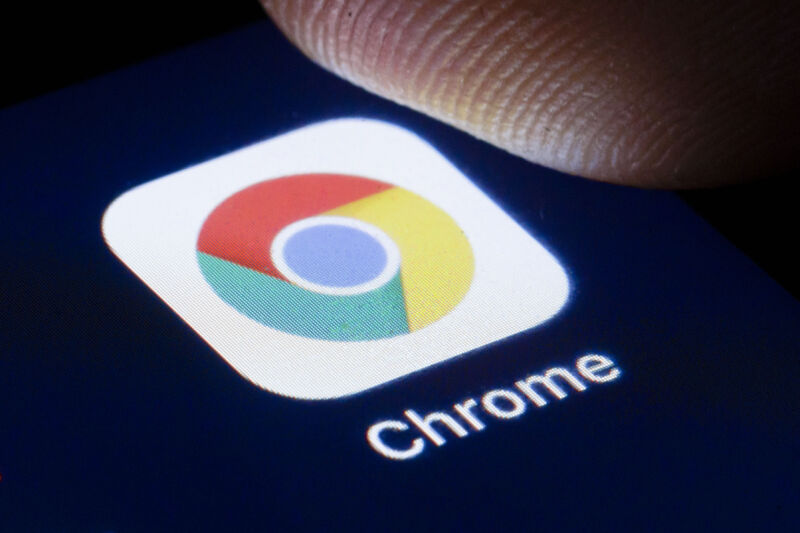Apple is being forced to make major changes to iOS in Europe, thanks to the European Union’s “Digital Markets Act.” The act cracks down on Big Tech “gatekeepers” with various interoperability, fairness, and privacy demands, and part of the changes demanded of Apple is to allow competing browser engines on iOS. The change, due in iOS 17.4, will mean rival browsers like Chrome and Firefox get to finally bring their own web rendering code to iPhones and iPads. Despite what sounds like a big improvement to the iOS browser situation, Google and Mozilla aren’t happy with Apple’s proposed changes.
Earlier, Mozilla spokesperson Damiano DeMonte gave a comment to The Verge on Apple’s policy changes and took issue with the decision to limit the browser changes to the EU. “We are still reviewing the technical details but are extremely disappointed with Apple’s proposed plan to restrict the newly-announced BrowserEngineKit to EU-specific apps,” DeMonte said. “The effect of this would be to force an independent browser like Firefox to build and maintain two separate browser implementations—a burden Apple themselves will not have to bear.” DeMonte added: “Apple’s proposals fail to give consumers viable choices by making it as painful as possible for others to provide competitive alternatives to Safari. This is another example of Apple creating barriers to prevent true browser competition on iOS.”
Apple’s framework that allows for alternative browser engines is called “BrowserEngineKit” and already has public documentation as part of the iOS 17.4 beta. Browser vendors will need to earn Apple’s approval to use the framework in a production app, and like all iOS apps, that approval will come with several requirements. None of the requirements jump out as egregious: Apple wants browser vendors to have a certain level of web standards support, pledge to fix security vulnerabilities quickly and protect the user’s privacy by showing the standard consent prompts for access to things like location. You’re not allowed to “sync cookies and state between the browser and any other apps, even other apps of the developer,” which seems aimed directly at Google and its preference to have all its iOS apps talk to each other. The big negative is that your BrowserEngineKit app is limited to the EU, because—surprise—the EU rules only apply to the EU.
Speaking of Google, Google’s VP of engineering for Chrome, Parisa Tabriz, commented on DeMonte’s statement on X, saying, “Strong agree with @mozilla. @Apple isn’t serious about supporting web browser or engine choice on iOS. Their strategy is overly restrictive, and won’t meaningfully lead to real choice for browser developers.”
Today, you can download what look like “alternative” browsers on iOS, like Chrome and Firefox, but these browsers are mostly just skins overtop of Apple’s Safari engine. iOS app developers aren’t actually allowed to include their own browser engines, so everything uses Safari’s WebKit engine, with a new UI and settings and sync features layered on top. That means all of WebKit’s bugs and feature support decisions apply to every browser.
Being stuck with Safari isn’t great for users. Over the years, Safari has earned a reputation as “the new IE” from some web developers, due to lagging behind the competition in its support for advanced web features. Safari has gotten notably better lately, though. For instance, in 2023, it finally shipped support for push notifications, allowing web apps to better compete with native apps downloaded from Apple’s cash-cow App Store. Apple’s support of push notifications came seven years after Google and Mozilla rolled out the feature.
More competition would be great for the iOS browser space, but the reality is that competition will mostly be from the other big “gatekeeper” in the room: Google. Chrome is the project with the resources and reach to better compete with Safari, and working its way into iOS will bring the web close to a Chrome monoculture. Google’s browser may have better support for certain web features, but it will also come with a built-in tracking system that spies on users and serves up their interests to advertisers. Safari has a much better privacy story.
Even though only EU users will get to choose from several actually different browsers, everyone still has to compete in the EU, and that includes Safari. For the rest of the world, even they don’t get a real browser choice; competing in the EU browser wars should make the only iOS browser better for everyone. The EU rules have a compliance deadline of March 2024, so iOS 17.4 needs to be out by then. Google and Mozilla have been working on full versions of their browsers for iOS for at least a year now. Maybe they’ll be ready for launch?

